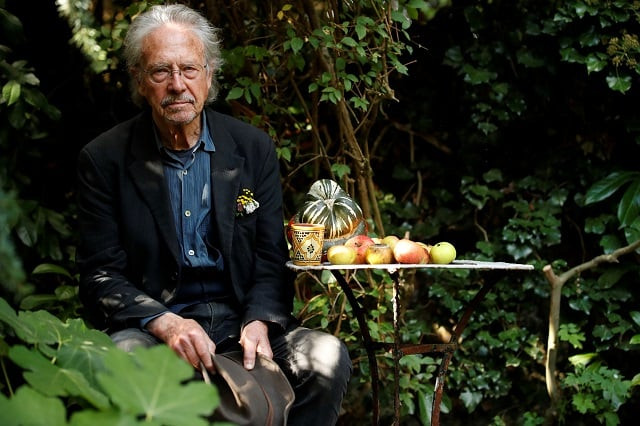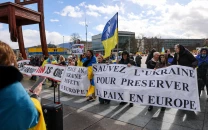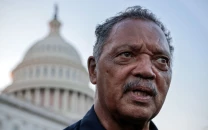Outrage over Nobel prize for writer who denies Muslim massacre
Peter Handke has accused Bosnians of staging Srebrenica massacre in which over 8,000 Muslims were killed by Serbs

Austrian author Peter Handke poses in his garden in Chaville near Paris, following the announcement he won the 2019 Nobel Prize in Literature. PHOTO: REUTERS
Despite a United Nations court ruling to the contrary, Handke has denied that genocide took place in Srebrenica, Bosnia where more than 8,000 Bosniaks were massacred by Serb soldiers in 1995.
It was the site of the worst atrocity in Europe since World War II.
Handke is widely seen as an apologist of the late Serbian President Slobodan Milosevic. In the 1990s, he emerged as a vocal defender of the Serbs during the bloody collapse of former Yugoslavia, even comparing them to Jews under the Nazis, a remark he later retracted.
His 1996 travelogue "A Journey to the Rivers: Justice for Serbia", caused a storm, and in 1999 he returned Germany's prestigious Buechner prize in protest at NATO's bombing of Belgrade.
Austrian Handke and Pole Tokarczuk win Nobel prizes for literature
In an article published in The Guardian in April 1999, journalist Ian Traynor reported that Handke "claimed that the Muslims had staged their own massacres in Sarajevo and had blamed this on the Serbs.
"Nor did he believe that Serb troops had butchered thousands of Muslim men at Srebrenica in the summer of 1995."
Bosnian actor Nermin Tulic, who was seriously injured during the 1992-1995 siege of Sarajevo by Bosnian Serb forces, greeted the award by tweeting an emoticon of a smiley vomiting.
Peter Handke wins the 2019 Nobel Prize in Literature🤮
— Nermin Tulic (@NerminTulic) October 10, 2019
Liberal Sarajevo politician Reuf Bajrovic said he could not understand that a jury thought that "Handke is a great writer and that his support to Slobo (Milosevic) and genocide makes part of his work great".
Emir Suljagic, a survivor of the Srebrenica genocide echoed him.
"A Milosevic fan and notorious genocide-denier gets Nobel prize in literature ... What a time to be alive," Suljagic, the Sarajevo-based professor of international relations tweeted.
Some time ago I wrote that Radovan Karadžić was one of the most important personalities of Serbian contemporary history, among other things because he was the first to imagine Europe without Muslims. @NobelPrize awarding rabid genocide denier Peter Handke shows I was right.
— Emir Suljagić (@suljagicemir1) October 10, 2019
The reaction was similar in Kosovo, which was devastated by the 1998-1999 war between Serb forces and pro-independence ethnic Albanian guerillas.
"Milosevic's supporter and denier of Serbian genocide receives the Nobel Literature Prize," the main Koha Ditore newspaper said.
At the 2006 funeral of Milosevic - who died while on trial for crimes against humanity, and who wanted Handke to testify in his defence - the writer made a speech in front of thousands of mourners.
Some stood up for Handke, including Nobel-winning compatriot Elfriede Jelinek. But many others, from Susan Sontag to Salman Rushdie, lined up to lambast him.
Pen America issued a statement Thursday saying that they "deeply regret the Nobel Committee on Literature's choice".
"We are dumbfounded by the selection of a writer who has used his public voice to undercut historical truth and offer public succor to perpetrators of genocide, like former Serbian President Slobodan Milosevic and Bosnian Serb leader Radovan Karadzic," it said.
"We reject the decision that a writer who has persistently called into question thoroughly documented war crimes deserves to be celebrated for his 'linguistic ingenuity'.
"At a moment of rising nationalism, autocratic leadership, and widespread disinformation around the world, the literary community deserves better than this."
Meanwhile in Serbia, papers hailed that the Nobel Prize was awarded to a "friend of Serbs" who is a member of the country's academy of sciences and arts since 2012.



















COMMENTS
Comments are moderated and generally will be posted if they are on-topic and not abusive.
For more information, please see our Comments FAQ